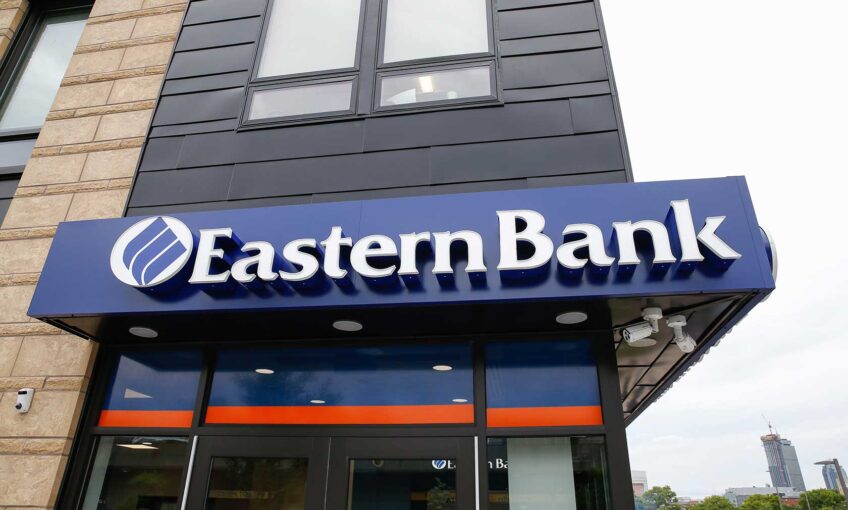Report: Racial wealth gap, discrimination block minority businesses from financing

Disparities in family wealth and discriminatory lending patterns are major contributors to the difficulties Black and Latino entrepreneurs face in accessing capital and loans to start and grow businesses in Massachusetts, according to a study released by the Boston Foundation last week.
While 18% of businesses in Massachusetts are owned by people of color, just 10% of small business loans go to majority-people-of-color neighborhoods, “The Color of the Capital Gap” report found. The gap between the needs of businesses owned by Black and Latino businesses and the capital they receive accounts for $300 million in unmet demand in the state, according to the study.
“We need to find the will to change perceptions, change discriminatory policies and practice, and get more capital flowing to these entrepreneurs and businesses,” said Boston Foundation Vice President for Programs Orlando Watkins during a conference held on Zoom last week.
Obtaining business loans and startup capital can be a critical make-or-break step for a business. Startup capital, the funding entrepreneurs use to launch a business, most often comes from the entrepreneur’s own resources — family wealth, savings or equity in one’s home. The Boston Foundation study points out that, according to a 2015 Federal Reserve Color of Wealth study, the median wealth of Black households in Boston was $8, while for white households it was $247,500.
“The racial wealth gap plays a critical role in determining which firms get started and which ones succeed,” noted Trevor Matos, research manager at the Indicators Project, the Boston Foundation’s research arm.
Matos said that the wealth gap stems from decades of discriminatory housing policies and lending policies that prevented many Blacks from buying homes. While 70% of whites in Massachusetts own their homes, just 36% of Blacks and 28% of Latinos do.
“In addition to having fewer resources in their bank accounts, entrepreneurs of color often can’t rely on home equity to use as collateral when they go for a small business loan,” he said. “And this is critical because small business loans and other debt products make up 98% of the small business capital market.”
But even when controlling for factors such as collateral, Black and Latino entrepreneurs are still less likely to receive financing than their white counterparts. Matos noted that the National Community Reinvestment Coalition has for years conducted tests where it sends pairs of individuals with identical profiles — one white, one a person of color — to lending institutions. The disparate results have suggested discrimination exists across the board.
“Statistical analysis of those experiments reveals that loan officers ask people of color for more information, they’re less helpful, and sometimes they even ask for information that violates fair lending laws,” Matos said. “The data show that entrepreneurs of color have lower approval rates at large banks, at small banks and among online lenders. Entrepreneurs of color are also more likely to face a host of other challenges when they go looking for a business loan.”
Even in programs specifically designed to aid entrepreneurs of color, such as the Small Business Association’s 7A loan program, Black and Latino entrepreneurs less likely to obtain capital than Asian borrowers.
The solutions outlined in the report include concrete steps government and private entities can take to increase access to small business loans; increased regulation of the financing sector to combat discrimination; expansion of alternative funding sources such as grants and a state-run development fund; and increased diversity in the capital allocation sector.
Matt Brewster, Principal of P2 Advisors, a co-author of the report, suggested a $100 million “credit enhancement fund” that would provide cash collateral or loan guarantees to financial institutions making small business loans, with $50 million carved out for Black and Latino-owned businesses.
During a panel discussion, Nia Evans, executive director of the Boston Ujima Project, said the focus on racial bias in lending is key to solving the disparities.
“When we think about the role that racial discrimination has played in processes like examining creditworthiness, for example, it’s a pretty outsized role, and I’m pleased that this report did not shy away from what can be an uncomfortable topic for a lot of people,” she said.
Greg Shell, Managing Director at Bain Capital, noted that government intervention has historically played a major role in broadening prosperity.
“A full examination of our history says that the government has broadly recognized when the balance of economic prosperity needed to be altered,” he said. He cited the Social Security Act and the GI Bill, which helped mostly white men to purchase their first homes and build intergenerational wealth.
Adding a racial equity lens to such programs could help correct the inequities those policies perpetuated.
“It’s really an exercise in dishonesty to wonder how you have the economic outcomes that we have had,” he said. “They are engineered.”
“The Color of the Capital Gap” report was produced in collaboration with the Coalition for an Equitable Economy, which collaborated on another report this year, “Unleashing the Potential of Entrepreneurs of Color in Massachusetts,” released by MassINC in March.






